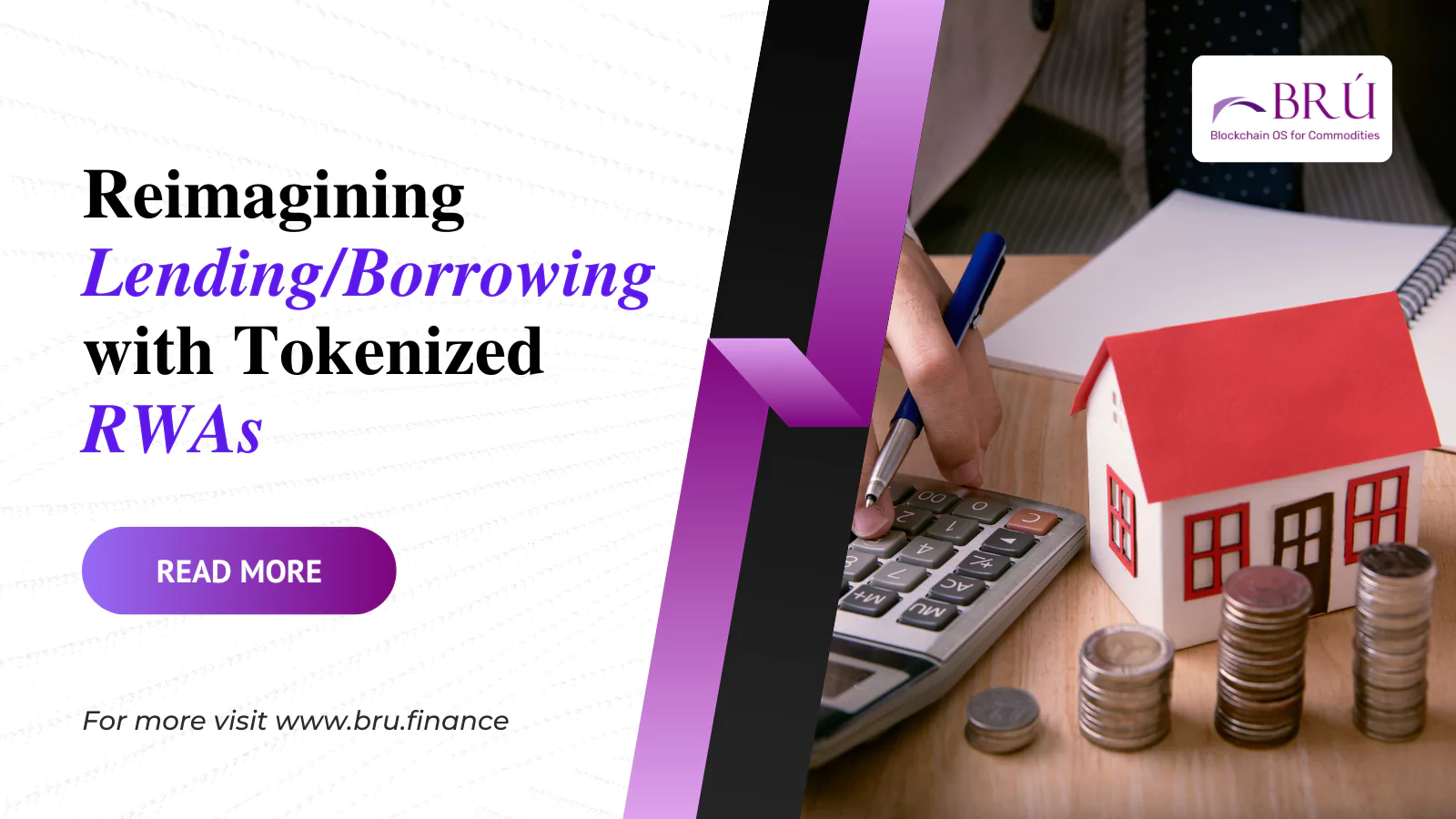
Reimagining Lending/Borrowing with Tokenized RWAs
Published On :13 December, 2024
The traditional lending system has long been constrained by inefficiencies and barriers. But with the rise of decentralized finance (DeFi), a new era is unfolding. At the forefront of this transformation is Real-World Asset (RWA) tokenization. This blog explores how RWA tokenization is unlocking new opportunities for decentralized lending, creating a more inclusive and efficient financial landscape for both borrowers and lenders.
RWA tokenization converts ownership of tangible assets like real estate, invoices, or intellectual property into digital tokens on a blockchain. These tokens represent fractional ownership and are recorded on a secure, transparent distributed ledger. By making these assets tradable, RWA tokenization enhances liquidity and accessibility, transforming how these assets can be used within DeFi ecosystems.
RWA Tokenization: Unlocking New Avenues for DeFi Lending
Let’s explore how RWA tokenization is reshaping decentralized lending:
Expanding the Range of Collateral
Traditional loans depend heavily on credit scores and income history, often excluding individuals and businesses with limited credit profiles. RWA tokenization changes this by enabling borrowers to use tokenized assets—such as property, outstanding invoices, or patents—as collateral. This shift promotes financial inclusion, allowing more people to access loans regardless of their credit history.
Unlocking Liquidity from Real-World Assets
Physical assets can be difficult to liquidate quickly. Tokenized assets, however, offer greater flexibility. Because these tokens represent fractional ownership, they can be easily traded on DeFi platforms. For instance, a small business owner needing cash to manage short-term expenses can tokenize an unpaid invoice and use it as collateral for a loan, gaining immediate liquidity.
Faster and More Efficient Loan Processing
DeFi platforms use smart contracts—self-executing code on the blockchain—to automate loan terms and conditions. This eliminates the need for cumbersome paperwork and long approval processes. Instead of waiting weeks for a traditional loan, borrowers can complete a DeFi loan application in minutes through user-friendly platforms.
Enhancing Trust Through Transparency and Security
Blockchain’s transparent and immutable ledger ensures all transactions are recorded and verifiable. Lenders can confidently assess the legitimacy of collateral and reduce fraud risk. Borrowers also benefit from clear terms, interest rates, and repayment schedules, fostering a trustworthy lending environment.
Diversification for Lenders
DeFi lending opens up a wider range of investment options. Lenders can diversify their portfolios by investing in tokenized assets beyond traditional bonds or loans. For example, instead of being limited to government bonds, lenders can explore real estate-backed loans, invoice financing, or investments in intellectual property.
Enabling Fractional Ownership and Granular Investments
With RWA tokenization, assets can be divided into smaller units, allowing more people to participate in DeFi lending with modest investments. Someone who might not afford an entire real estate property can invest in a fraction of a tokenized property and still benefit from market exposure.
Lower Transaction Costs
By cutting out intermediaries like banks, DeFi lending platforms can significantly reduce transaction fees. Both borrowers and lenders benefit from lower costs, making lending and borrowing more affordable compared to traditional financial systems.
Global Access to Loans and Investments
DeFi platforms operate globally, removing geographical barriers. Borrowers from anywhere in the world can access capital, while lenders can invest in international opportunities. For instance, a small business in a developing country can secure funding from global lenders, bypassing local banking limitations.
Challenges and Potential Solutions in RWA Tokenization
Despite its promise, RWA tokenization faces some challenges:
-
Regulatory Uncertainty: The regulatory landscape for RWA tokenization and DeFi is still developing.
- * Solution: Collaboration between regulators and industry leaders to establish clear, consistent guidelines. Countries like the USA, UK, and Switzerland are already making strides toward regulatory clarity.
-
Valuation and Risk Assessment: Accurately assessing the value and risks of tokenized assets can be complex.
- * Solution: DeFi platforms can develop robust frameworks for asset valuation and risk management. Many platforms are actively working on these solutions.
-
Liquidity Risks: The liquidity of tokenized assets can vary based on market conditions.
- * Solution: Implementing liquidity pools, automated market makers, and secondary markets to improve asset liquidity.
The Future of DeFi Lending with RWA Tokenization
As RWA tokenization matures, we can expect significant shifts in the lending landscape:
- * Traditional Finance Meets DeFi: Traditional financial institutions may integrate DeFi features, creating hybrid lending models.
- * New Lending Products: Innovative DeFi lending solutions tailored to different needs will emerge.
- * User-Friendly Platforms: Improved interfaces and educational resources will make DeFi more accessible to mainstream users.
- * Regulatory Progress: Clearer regulations will drive growth and adoption of DeFi lending.
DeFi and RWA tokenization are redefining how loans are accessed and managed. While challenges remain, the potential for creating a more inclusive, efficient, and transparent financial system is immense. As technology evolves and regulations adapt, decentralized lending is poised to empower individuals and communities worldwide, transforming the future of finance.
For more updates and latest news about Brú Finance, please join our Twitter Channel, Discord server, LinkedIn, Telegram at
Please join our Discord events and Twitter AMAs to connect directly with our founders and ask your queries.
Discord: https://discord.gg/8C9SZXDy2r
Telegram Channel : https://t.me/bruofficial
Twitter : https://twitter.com/bru_finance
LinkedIn : https://www.linkedin.com/company/bru-finance/
Facebook :https://www.facebook.com/brufinance/
Instagram :https://www.instagram.com/brufinance/?igshid=YmMyMTA2M2Y%3D

 1.png)